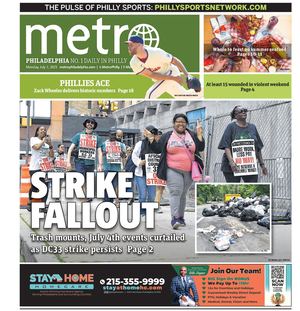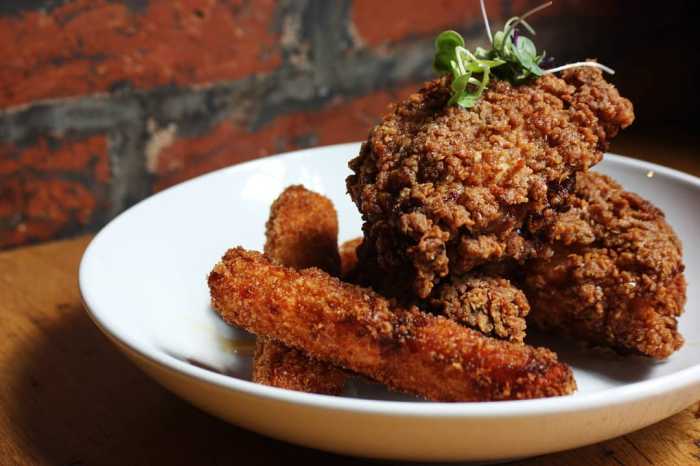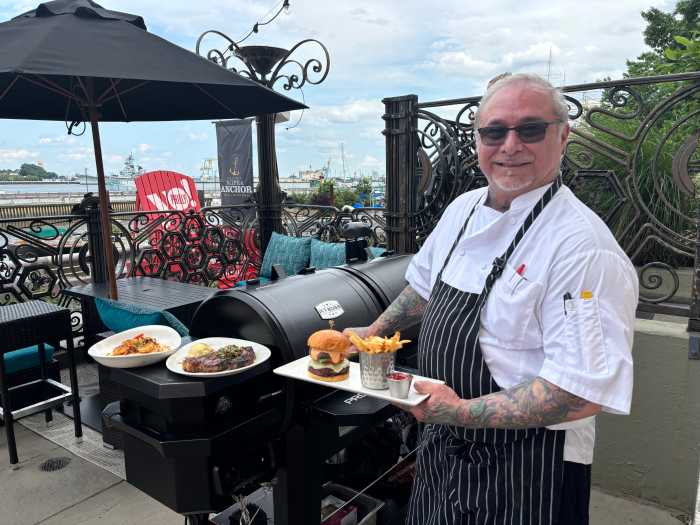“There are 11 million jobs on the line and we have a legislature that’s failing us right now.”
That bleak but true statement comes from local chef Tyler Akin, who has been around Philly’s food scene since 2012. Akin came to Philly to begin working at Zahav under multi-James Beard Foundation award-winning chef and restaurateur Michael Solomonov, and then went on to open his own establishments two years later. Philadelphians may have dined at Akin’s dual concept all-day cafe and Southern Italian eatery Res Ipsa, and both Stock locations in Fishtown and Rittenhouse Square—though the first is no longer operating and the other two have begun to reduce hours immensely to cope with the effects of the pandemic on the restaurant industry. On top of his venues here, Akin also has had to reduce hours of operation for his recently opened eatery at the historic Hotel Du Pont in his hometown of Wilmington, Delaware.
Earlier this year in May, Metro first talked to Akin about the continuous fight to save Philly restaurants. Now, almost six months later, that fight has not faded. In fact, in some areas, it’s only gotten worse. For Akin’s two Stock locations, or specifically the one in Rittenhouse, the decrease of foot traffic from offices has hit them significantly.
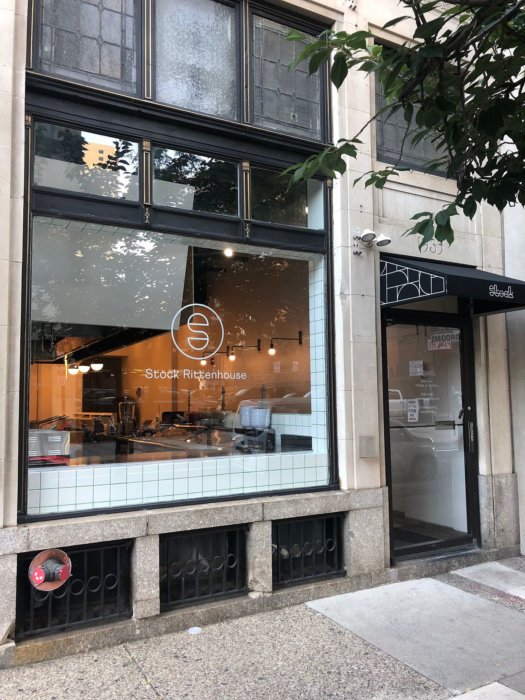
“Having lost that volume, it’s a real struggle there especially with rent accommodations not having been made,” explains Akin. As for Res Ipsa, with an upscale menu and experience that just couldn’t translate to take-out, not enough outdoor seating, and lack of alcohol proved to be enough for the establishment that was hailed a masterpiece by many foodies to close its doors.
“I think we all saw what was around the corner this fall and winter with the COVID stuff and we just really didn’t see a path forward there to honor our obligations and make it work,” he adds.
Unfortunately, that tune can be sung for many other eateries in the Philadelphia area as well. Most recently, with the tight restrictions on indoor dining, many establishments have chosen to close down or “hibernate” for the winter. Unfortunately, that hibernation might become a permanent sleep for some unless action is taken.
“Restaurants are closing, jobs are being lost, people are going back on unemployment without a Federal Supplement available to them—it’s like an industry on the precipice of complete failure and extinction,” explains Akin.
In the United States alone, the food and beverage industry employs 10-12 million people, and people might not realize just how impactful these eateries are in regards to creating memories.
So what can be done?
To combat the impending hardships that the industry will face, there has been a lot of action being taken. Akin is specifically involved in the IRC (Independent Restaurant Coalition) where he works with national leaders in our culinary community as well as DC lobbyists. There also is the PRLA (Pennsylvania Restaurant & Lodging Association), which represents the interests of over 1,600 restaurants in the state and the Save Philly Restaurants Coalition. That latter effort has been spearheaded by Nicole Marquis who owns the Latin-inspired eatery Bar Bombón, cocktail bar Charlie Was A Sinner, and nine venues of her fast-casual concept HipCityVeg in the city and also in Washington D.C.
“I really stepped back my engagement with PRLA, but it’s a group of great people who I know are really invested in the restaurants in Pennsylvania,” says Akin. “But for me, I took on such a substantial role with the IRC [and] that became my focus. I can just say somewhat from the outside looking in, [the PRLA] have advocated for expansion on indoor dining and kind of challenging this reduction back to zero. I know they’re active on the business liability front and providing resources for restaurants as they become available as well. Whether it’s weatherization grants from Grubhub and DoorDash or possible follow-up funding from state and local governments for restaurants around the states. For me, I felt that the federal government was the only realistic solution for our industry. Having the resources and credit that obviously federal reserve and treasury have, just looking at it from a balcony view, that’s where I wanted to spend my time and put my efforts.”
The organizations are meant to be an avenue of communication for both the restaurants and government on all levels. So far, this has helped to secure some advancement on the Restaurant’s Act. The broad framework for this bill was crafted by the IRC’s policy committee which Akin is on. From the get go, there has been support from both the House and the Senate. This act would help provide funding to restaurants, specifically independent ones that the Paycheck Protection Program wouldn’t be able to help with.
“We found sympathetic ears on both sides of the House and both sides of the aisle within each house. On the House side, Earl Blumenauer is the sponsor of the legislation and then Philly’s own Brian Fitzpatrick is the minority party original co-sponsor in the House,” says Akin. “We’re in this kind of incredible place now where we’ve got over 200 co-sponsors in the House and as of a few weeks ago 50 in the Senate.”
A lot of the support came from the Mid-Atlantic, however, there is one notable name missing, and it happens to be someone who has roots in the industry.
“I would urge anybody in Philadelphia to reach out to Senator Toomey, who himself is an ex-restauranteur,” says Akin. Toomey once owned and operated a sports bar in Allentown for some time before he became a politician. The absence of his name and support has confused the industry members that he was once a part of.
“It’s been a disappointment and surprise to us that Senator Toomey hasn’t jumped behind the bill, because I think it speaks for itself. For somebody who has roots in our industry, understanding the challenges that we’re dealing with on such an intimate level, it’s confounding to us that we don’t see his signature with this bill. He turned his back on us and none of us understand it,” finishes Akin.
However, there is a light at the end of the tunnel. It’s just going to have to take some effort from officials and those who aren’t in government as well.
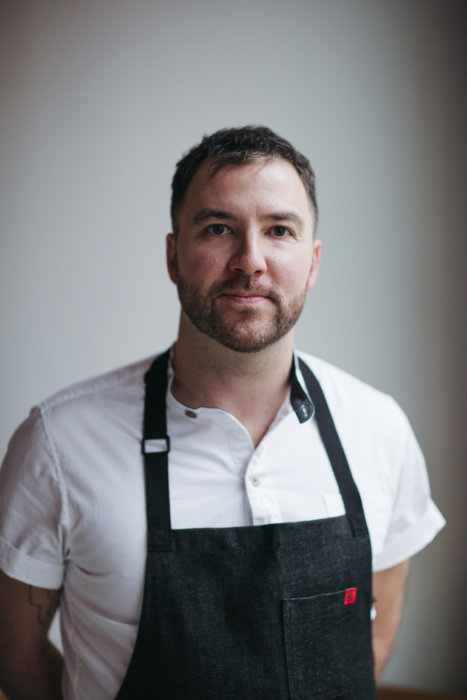
“We’re optimistic that people are going to see the light and either pass the Restaurants Act as a larger spending bill or as a standalone. It actually did pass the House as part of the Cares Act, then, unfortunately, the Senate tabled it and went home to campaign for themselves and this situation is deteriorating every day,” explains Akin. “People in power can use their relationships to advocate on the restaurant’s behalf. [Also], I think people would be surprised to know how responsive these offices can actually be. Reach out to whatever Senator or Congresswoman’s scheduler, you can often get an audience and have your voice heard. If you feel like writing an email, it’s always nice to have that personal touch too. I would encourage people to continue patronizing restaurants and be thoughtful about who they’re patronizing.”
Restaurants are suffering, but there is something that can be done. It just takes a little effort. Akin implores citizens to think about the times and memories that were made special because of restaurants. After this winter many may be gone, but that can be helped if people attempt to make that change any way they can. It’s not going to be an easy road, but if every person puts forth that effort, restaurants can be saved. Seeing what can be done when we unify and put our voices out there can be a silver lining to the dumpster fire of a year that is 2020, specifically for the restaurants industry. Wouldn’t that be wonderful?
To learn more information about the PRLA, visit prla.org and to learn more information about the IRC, visit saverestaurants.com. To reach Pat Toomey’s office, Philadelphians can email through toomey.senate.gov
